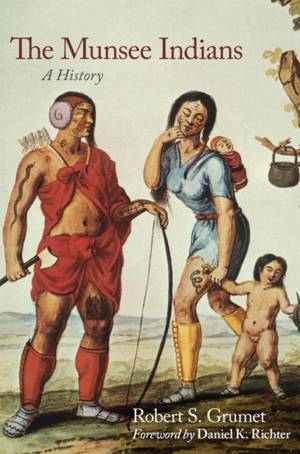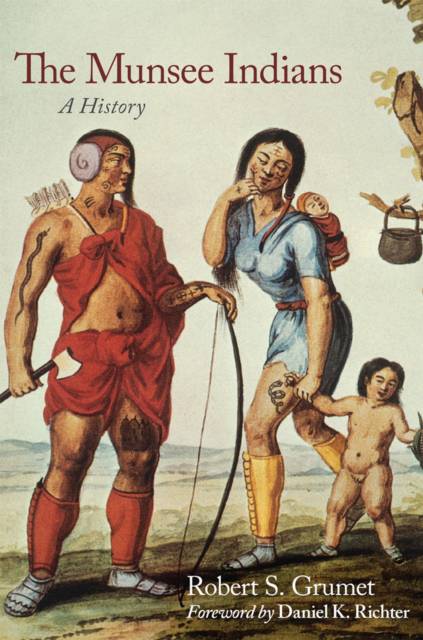
- Retrait gratuit dans votre magasin Club
- 7.000.000 titres dans notre catalogue
- Payer en toute sécurité
- Toujours un magasin près de chez vous
- Retrait gratuit dans votre magasin Club
- 7.000.0000 titres dans notre catalogue
- Payer en toute sécurité
- Toujours un magasin près de chez vous
Description
The Indian sale of Manhattan is one of the world's most cherished legends. Few people know that the Indians who made the fabled sale were Munsees whose ancestral homeland lay between the lower Hudson and upper Delaware river valleys. The story of the Munsee people has long lain unnoticed in broader histories of the Delaware Nation.
Now, The Munsee Indians deftly interweaves a mass of archaeological, anthropologi-cal, and archival source material to resurrect the lost history of this forgotten people, from their earliest contacts with Europeans to their final expulsion just before the American Revolution. Anthropologist Robert S. Grumet rescues from obscurity Mattano, Tackapousha, Mamanuchqua, and other Munsee sachems whose influence on Dutch and British settlers helped shape the course of early American history in the mid-Atlantic heartland. He looks past the legendary sale of Manhattan to show for the first time how Munsee leaders forestalled land-hungry colonists by selling small tracts whose vaguely worded and bounded titles kept courts busy--and settlers out--for more than 150 years.
Ravaged by disease, war, and alcohol, the Munsees finally emigrated to reservations in Wisconsin, Oklahoma, and Ontario, where most of their descendants still live today. Coinciding with the four hundredth anniversary of Hudson's voyage to the river that bears his name, this book shows how Indians and settlers struggled, in land deals and other transactions, to reconcile cultural ideals with political realities. The result is the most authoritative treatment of the Munsee experience--one that restores this people to their place in history.
This book is published with the generous assistance of Furthermore: a program of the J. M. Kaplan Fund.
Spécifications
Parties prenantes
- Auteur(s) :
- Editeur:
Contenu
- Nombre de pages :
- 482
- Langue:
- Anglais
- Collection :
Caractéristiques
- EAN:
- 9780806186528
- Date de parution :
- 04-01-22
- Format:
- Livre broché
- Format numérique:
- Trade paperback (VS)
- Dimensions :
- 156 mm x 234 mm
- Poids :
- 734 g

Les avis
Nous publions uniquement les avis qui respectent les conditions requises. Consultez nos conditions pour les avis.






